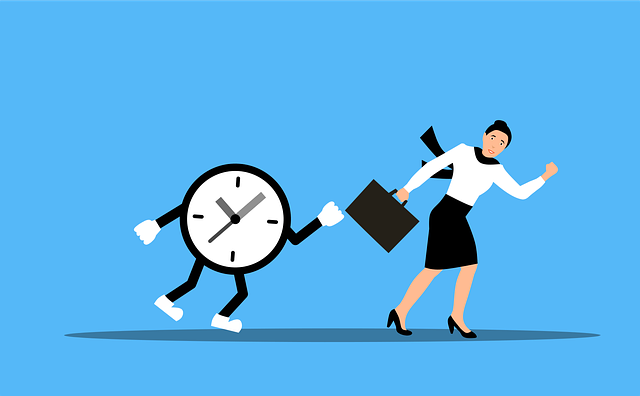5 Common Exam Mistakes and How to Avoid Them for Better Results

Exams can be stressful, especially when you’ve invested weeks, or even months, preparing for them. But despite all the hard work, many students still make common mistakes that can cost them valuable marks. These mistakes often seem small but can have a significant impact on your performance. Understanding these errors and knowing how to avoid them can be the difference between achieving your target grade or falling short.
In this blog, we’ll explore the 5 most common exam mistakes that students make and offer practical advice on how to avoid them. With these strategies, you’ll be more prepared, confident, and able to perform at your best on exam day.
Table of Contents
Mistake 1: Misreading the Instructions
Mistake 2: Poor Time Management
Mistake 3: Skipping Easy Questions
Mistake 4: Failing to Review Your Answers
Mistake 5: Ignoring Physical and Mental Health
Practical Tips for a Successful Exam Day
Practical Tips for a Successful Exam Day
Conclusion: Key Takeaways for Avoiding Exam Mistakes
FAQs: Common Questions About Exam Mistakes
Mistake 1: Misreading the Instructions
One of the most common exam mistakes is misreading or overlooking the instructions. Whether it’s the number of questions to answer or the format in which answers should be given, misinterpreting instructions can cost you precious marks.

How to Avoid It:
Read Carefully: Take time to carefully read the entire instruction section before starting your exam. Pay attention to whether the questions require multiple answers or just one.
Highlight Key Information: Use a highlighter or underline important instructions. This makes it easier to refer back to them during the exam.
Ask Clarifying Questions: If you’re unsure about something, ask the invigilator for clarification. It’s better to ask than to make assumptions.
Mistake 2: Poor Time Management
Managing your time during an exam is crucial. Many students fail to allocate enough time for each section or question, which leads to rushed answers or unfinished questions.

How to Avoid It:
Plan Your Time: Before diving into the exam, take a few minutes to plan how much time you will spend on each section. For example, if the exam is for two hours and there are 5 sections, allocate 20 minutes to each section.
Stick to the Plan: Keep an eye on the clock and make sure you are sticking to your time limits. If you’re stuck on a question, move on and come back to it later if needed.
Leave Time for Review: Always reserve the last 5-10 minutes to review your answers. It’s easy to make small errors that can be fixed with a quick revision.
Mistake 3: Skipping Easy Questions
Students sometimes focus too much on difficult questions and skip over the easier ones. These easy questions may carry significant marks, and skipping them can hurt your overall score.

How to Avoid It:
Tackle Easy Questions First: Start by answering the questions you know well. This will help you build confidence and ensure that you collect easy marks.
Mark and Move On: If you’re stuck on a question, mark it and move on. Don’t waste too much time on difficult questions. You can always come back to them after completing the rest.
Prioritize Based on Marks: Pay attention to how much each question is worth. Ensure that you spend enough time on higher-value questions but don’t neglect the easy ones.
Mistake 4: Failing to Review Your Answers
Many students finish their exam, hand it in, and leave, without reviewing their answers. Failing to review your work can lead to missed mistakes, such as spelling errors, miscalculations, or unanswered questions.

How to Avoid It:
Always Review Your Answers: Always reserve time at the end of your exam to review your answers. This will give you a chance to catch any errors and ensure that all questions have been answered.
Check for Common Mistakes: Pay attention to common errors such as spelling, grammar, and calculation mistakes. Also, double-check any questions you were unsure about.
Take a Break Before Reviewing: If possible, take a brief moment to clear your mind before reviewing your answers. A fresh perspective can help you spot errors you might have missed the first time.
Mistake 5: Ignoring Physical and Mental Health
One of the biggest mistakes students make is neglecting their physical and mental well-being during exams. Stress, lack of sleep, poor nutrition, and anxiety can significantly affect exam performance.

How to Avoid It:
Get Enough Sleep: Make sure to get at least 7-8 hours of sleep the night before the exam. A well-rested brain performs better than a tired one.
Eat a Balanced Meal: Eating a nutritious meal before the exam will fuel your brain and keep your energy levels high. Avoid heavy or greasy foods that could make you feel sluggish.
Stay Calm: Take deep breaths and stay calm if you start feeling overwhelmed. Practicing mindfulness or meditation can help reduce exam anxiety and improve focus.
Exercise Regularly: A healthy body leads to a healthy mind. Regular physical activity can reduce stress and improve concentration.
Practical Tips for a Successful Exam Day
Aside from avoiding the common mistakes listed above, here are a few additional tips to help you prepare for and succeed on exam day:
1. Organize Your Materials:
Before the exam, make sure you have all the necessary materials: pens, pencils, erasers, ID card, and any other required documents. Having everything in place will help you avoid unnecessary stress on exam day.
2. Stay Positive:
A positive mindset is crucial for exam success. Instead of thinking about potential failures, focus on the hard work you’ve put in and believe in your ability to do well.
3. Practice Past Papers:
Practice makes perfect. Working through past exam papers will help you get used to the format, identify common question types, and improve your time management.
4. Arrive Early:
Give yourself plenty of time to get to the exam center. Arriving early will reduce stress and help you feel more relaxed.
Conclusion: Key Takeaways for Avoiding Exam Mistakes
Exams can be challenging, but understanding and avoiding common mistakes can greatly improve your chances of success. By following these tips, you’ll be better equipped to handle the pressures of exam day and avoid making errors that could cost you valuable marks.
Remember to:
- Read instructions carefully.
- Manage your time wisely.
- Answer easy questions first.
- Always review your answers.
- Take care of your physical and mental health.
With these strategies in mind, you can approach your exams with confidence and a better chance of achieving the results you desire.
FAQs: Common Questions About Exam Mistakes
1. How can I improve my time management during exams?
To improve time management, plan your exam schedule before you begin, stick to the time limits for each section, and leave time for reviewing your answers at the end.
2. How can I stay calm during exams?
Practice relaxation techniques, such as deep breathing or meditation, before and during the exam. Avoid cramming the night before and make sure to sleep well.
3. What should I do if I feel overwhelmed during the exam?
Take a few deep breaths, focus on one question at a time, and stay calm. If you’re stuck, move on and come back to the difficult questions later.
4. How can I ensure I don’t miss easy questions?
Start with the questions that are easiest for you, mark any that are tough, and come back to them once you’ve answered everything else.
5. How important is it to review my answers?
Reviewing your answers is crucial as it helps catch any mistakes, miscalculations, or missed questions. It also gives you the chance to recheck your responses.
Take our FREE Career Assessment Test now for personalized guidance! If you have any questions about this blog or need further clarification, feel free to contact us!

